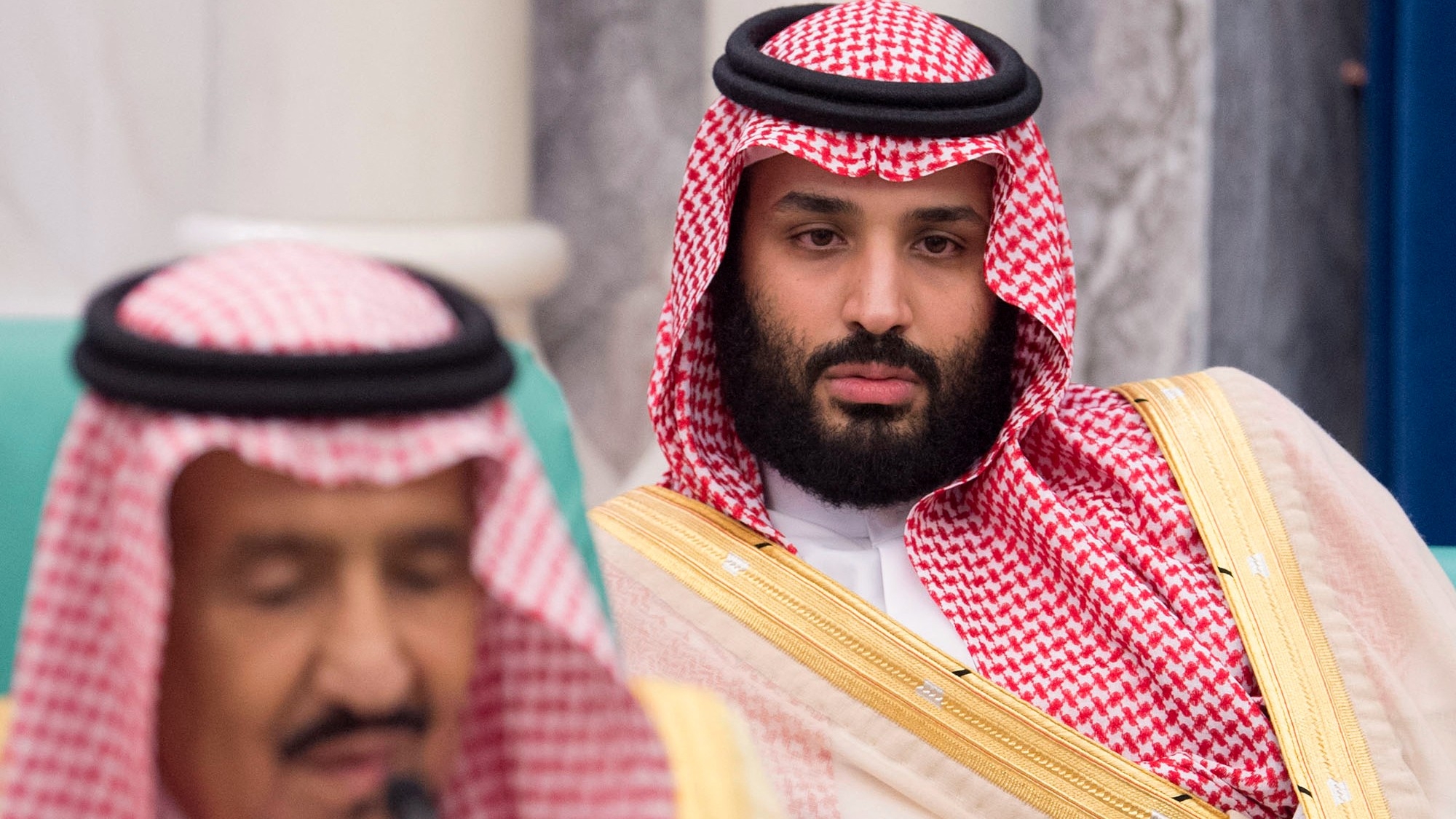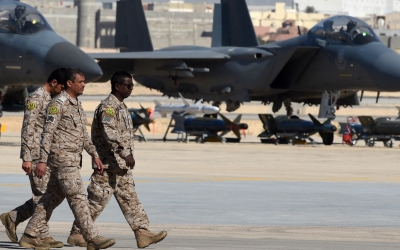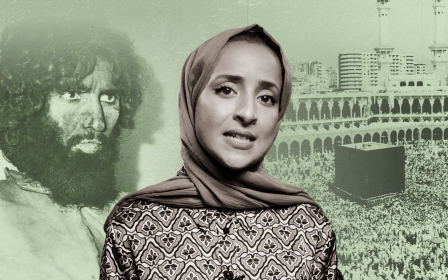Saudi Arabia: MBS forged father's signature in Yemen war decree, ex-official says

A dissident Saudi official has alleged that Crown Prince Mohammed bin Salman forged his father's signature in a royal decree which committed Saudi ground troops in the early stages of the Yemeni civil war.
Saad al-Jabri, who was Saudi Arabia's spy chief until he fled the country in 2017, made the claim in a BBC documentary The Kingdom: The World's Most Powerful Prince.
Jabri said he had discussed the war, which began in September 2014, with Susan Rice, national security adviser to then-US President Barack Obama. Rice said that Washington would only support an air campaign.
Jabri said that the crown prince, who was the defence secretary at the time in early 2015, was determined to press ahead and ignored Washington.
"We were surprised that there was a royal decree to allow the ground interventions," Jabri told the BBC. "He forged the signature of his dad for that royal decree. The king’s mental capacity was deteriorating."
New MEE newsletter: Jerusalem Dispatch
Sign up to get the latest insights and analysis on Israel-Palestine, alongside Turkey Unpacked and other MEE newsletters
The former spy chief said he had a "credible, reliable" source for the allegation linked to the interior ministry, where Jabri had been chief of staff. Middle East Eye could not independently verify the claim.
Jabri added that the CIA's station chief in Riyadh was angered by the crown prince's decision.
A Saudi-led coalition, which included the United Arab Emirates, intervened on behalf of the Yemeni government in March 2015 to push back the Houthis, after the group took control of Sanaa.
Coalition air strikes killed thousands of civilians, according to UN reports, while the Houthis launched missiles and drones at civilian infrastructure in Saudi Arabia and the UAE.
The coalition was unsuccessful in driving the Houthis out of the Yemeni capital, with the group now de-facto leaders in the north of the war-torn country. The south of the country is mostly controlled by the separatist Southern Transitional Council.
John Sawers, a former MI6 chief, told the BBC that he did not know if Mohammed bin Salman, often referred to by his initials, had forged the royal decree, but that "it is clear that this was MBS’s decision to intervene militarily in Yemen. It wasn’t his father’s decision, although his father was carried along with it."
Elsewhere in the documentary, Jabri said that he had a conversation with the crown prince in January 2015, as former ruler King Abdullah was dying in hospital.
Mohammed bin Salman told Jabri to leave his mobile phone outside, and did the same too. The prince was so fearful of spies that he disconnected the only landline telephone in the room they were meeting.
According to Jabri, the prince then spoke of plans of how he would sell stakes in Aramco, the Saudi state oil producer, and attempt to diversify the economy and give Saudi women more freedom to join the workforce.
"Have you heard of Alexander the Great?" Mohammed bin Salman said, summarising his ambitions.
'Poisoned ring'
The de-facto leader of the kingdom has developed a reputation for ruthlessness. In an interview with CBS's 60 Minutes programme three years ago, Jabri alleged that Mohammed bin Salman suggested he could kill King Abdullah in 2014 with a poisoned ring.
"He was banned from court, from shaking hands with the king, for a considerable amount of time," Jabri told the BBC.
Jabri was the second-in-command in the kingdom's Interior Ministry, before he fled to Canada in 2017. His then boss, Interior Minister Bin Nayef, was put under house arrest shortly afterwards.
The former top adviser is believed to be one of several prominent Saudis, including princes and dissidents, targeted by the squad whose existence was first revealed by MEE.
Jabri's children, Omar and Sarah, and his son-in-law, Salem Almuzaini, are currently being held in Saudi prisons.
Omar and Sarah, who were planning to attend college in the US, were barred from leaving the kingdom in 2017.
Almuzaini was kidnapped from Dubai and returned to the kingdom, according to legal filings.
Middle East Eye delivers independent and unrivalled coverage and analysis of the Middle East, North Africa and beyond. To learn more about republishing this content and the associated fees, please fill out this form. More about MEE can be found here.





